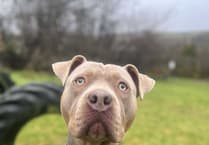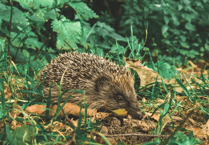In her latest column, ManxSPCA general manager Juana Warburton offers a reminder about buying ethically and locally as the RSPCA’s standards come under scrutiny...
The ManxSPCA, or MSPCA as it’s also referred to, may sound as though it is connected to the UK’s RSPCA, but the two charities are completely independent of each other. It is important to establish this fact given the RSPCA is facing adverse publicity following the resignation last week of its president, conservationist and TV presenter Chris Packham, and its vice president, former Green party MP, Caroline Lucas.
These resignations have not come out of the blue, though, and follow the resignation in September 2024 of another vice president, Queen guitarist Sir Brian May. The resignations are all linked to the RSPCA’s ‘Assured’ scheme, a food certification label that demonstrates that farms, food producers and abattoirs meet the RSPCA’s animal welfare standards. The scheme was first launched thirty years ago as ‘Freedom Food’ and it laid out strict welfare standards for producers of meat, fish, eggs and dairy products. Over the years the scheme has influenced the buying behaviour of people who wish to consume what they believe to be ethically produced animal products. There are thousands of Assured products in all the UK’s major supermarkets, including the Isle of Man’s main one.
But video footage captured by an animal welfare activist group, Animal Rising (who were also responsible for the sabotage of the 2023 Grand National), allegedly shows that the RSPCA’s standards are not being met in a significant number of Assured locations in the UK – forty farms and four abattoirs. In fact, Animal Rising’s footage appeared to show systematic animal cruelty. It said that ‘In one slaughterhouse 85% of pigs were stunned incorrectly, leaving animals conscious during slaughter, and in another 96% of cows were prodded with an electric goad, a practice banned by the RSPCA … There was also frequent verbal and physical abuse from workers, and animals watching in terror and panic as other animals were killed or stunned in front of them’.
In response to the footage, the RSPCA launched an independent review of the Assured scheme, to be carried out over several months, and to include unannounced visits to more than 200 members of the scheme. The charity has also pledged to invest £2 million into technology such as CCTVs and body worn cameras. An RSPCA spokesperson said ‘While 94% of people choose to eat meat, fish, eggs and dairy, it is the right thing to do to work with farmers now to improve the lives of animals … There is currently little or no legal protection for farmed animals, and very little enforcement … We have pioneered change through RSPCA Assured, which has led to improvements throughout the industry including CCTV in slaughterhouses, banning barren battery cages for hens and sow stalls for pigs, giving salmon more space to swim and developing slower growing chicken breeds who have a better quality of life’.
But this response has not satisfied Packham et al who believe the Assured scheme is fundamentally flawed, and that it not only fails to uphold the RSPCA’s standards but it also misleads the public.
This debate will, no doubt, continue – but one thing both sides of the argument agree on is that we should all be questioning the provenance of the food we eat, and be prepared to pay as much as we can afford for it. Here on the Isle of Man, the ManxSPCA has queried certain practices carried out by our local abattoir, but we firmly believe that it is better for animals to be slaughtered on-island in a well-regulated environment. And whilst a small number of farmers on the island fall short, most uphold high animal welfare standards. Added to which, the majority of the island’s farm animals are grass-fed and free range. All the more reason to buy local produce when you can.




